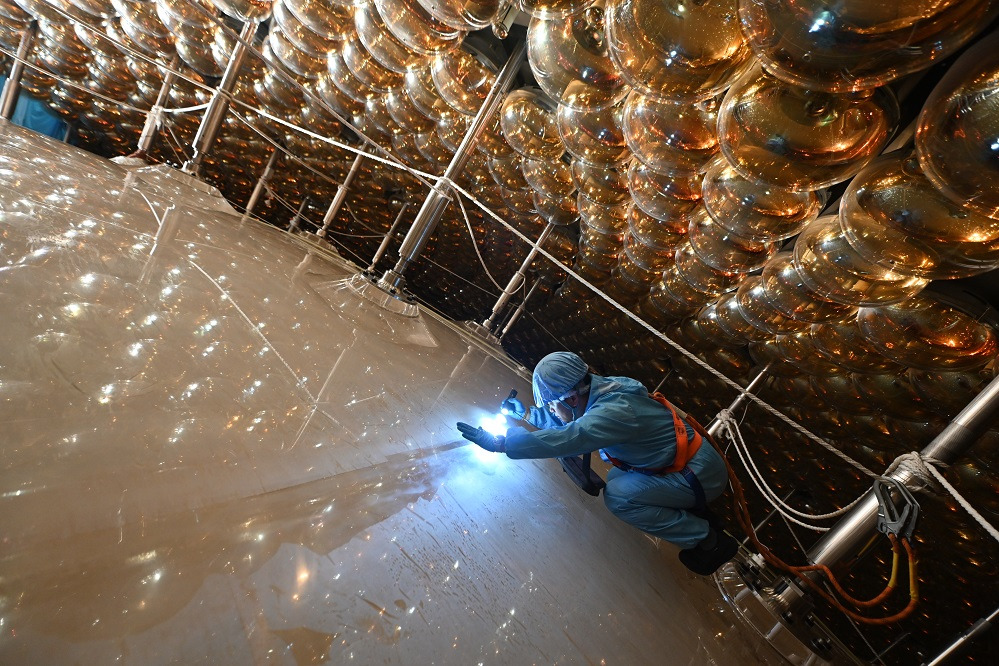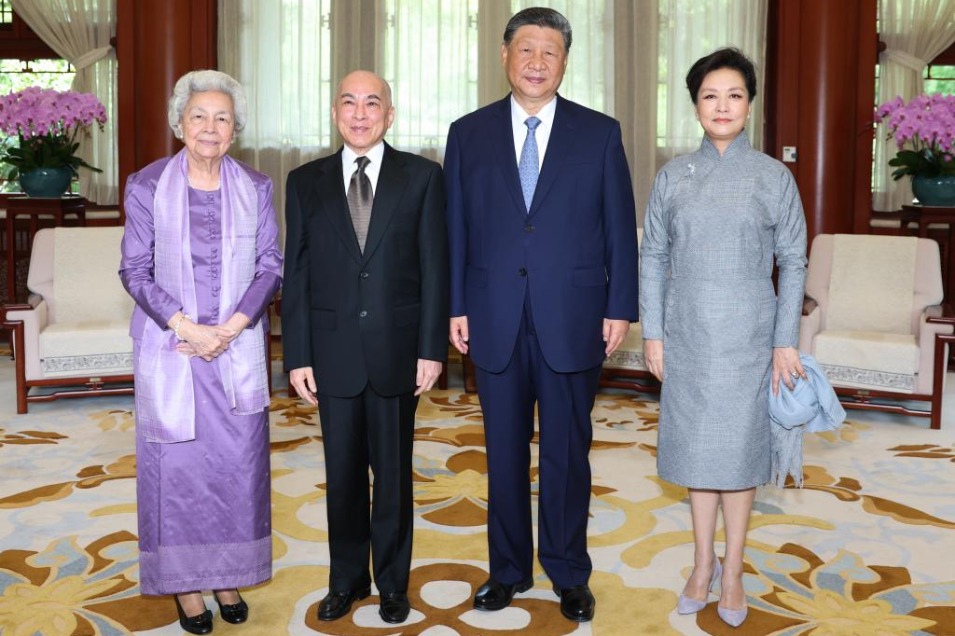The arts of inclusivity
Cultural venues across the country look to raise awareness about accessibility for, and the wider requirements of, people with disabilities, Cheng Yuezhu reports.

Part-time video blogger Zhao Hongcheng has been sharing her everyday life as a wheelchair user, reviewing barrier-free facilities, or the lack of them, in urban public spaces.
A year ago, she posted two videos on streaming site Bilibili, in which she told of her experiences of visiting a few art and cultural venues in Shanghai, the facilities and services of which showed a great discrepancy.
In the comments section of the videos, many viewers expressed their commendation of the smooth experiences, or indignation at any unfair treatment she received, but Zhao also realized that efforts are still required to raise public awareness.
"The fact that the videos resonated with a lot of people made me realize that they have social significance," Zhao said at the recent Fourth UK-China Disability Arts Forum.
"There are still people who lack an understanding of why people with disabilities need to go to these cultural events, and many art organizations not only need to realize that they have visitors or consumers with disabilities, but also understand the requirements of this particular group."
Her becoming a blogger was a spur-of-the-moment decision. At the beginning of 2019, she and a few friends traveled to Guangzhou, the provincial capital of Guangdong, and she decided to film the experience as a reference for other wheelchair users who would like to go traveling.
The video led her to share her everyday experiences of working, shopping and taking different modes of transport, to show the public the ordinary life of a wheelchair user.
Since then, she has been engaged more actively in cultural activities that allow her to feel a renewed sense of freedom and enlightenment toward the idea of disability confidence.
"When I appreciate the artworks or stage productions, I can get to feel an unbounded creativity that is rarely experienced in everyday life. They allow me to feel tolerance and equality, but the prerequisite of these experiences is that the venues are equipped with barrier-free facilities," she says.
Zhao has also been participating in art-related projects, such as inclusive dance workshops, where she's been able to engage in bodily expression and gain personal confidence.
"These experiences rid me of the sense of shame. For a long time, what I perceived from other people was that disability is something to be hidden away, and I could not say with confidence that I'm proud of being someone with a disability," she says.
"But now, I think the crux of promoting disability confidence is through the awareness of the public. Our society should build such an environment where disability is fully accepted, rather than a defect to be remedied."
By posting these videos about her life, she is taking action and setting an example for other people. During her university years, she went through a stage of uncertainty about how she would be able to fit into society, and it was the stories of other people with disabilities that inspired and motivated her.
"If I go back in time, to a decade ago, I would be very inspired by someone posting these videos. I'd feel very reassured, because wheelchair users can also work in an office, be in a relationship, or go traveling. I think being a video blogger has its social value," she adds.
Zhao was one of four guest speakers at the recent forum's panel discussion, joined by Peng Yujiao, founder of BEST Beijing Enable Sister Center, Bu Wei, a researcher with the Chinese Academy of Social Sciences, and Mao Ling, a representative from Shanghai's Theater Young.
Centered on "disability confidence in arts and cultural organizations", the panel discussion aimed to deepen the dialogue among different communities, discuss the deficiencies in knowledge and capacity building, as well as to encourage arts and cultural organizations to take the lead in the development of an inclusive culture.
Earlier this year, Zhao was invited to review the accessible facilities of Theater Young, a revamped venue that was once the Yangpu Grand Theater, which opened to the public in September.
Mao says when she joined the theater, she positioned it as "an inspiring and inclusive art hub", with stirring stage productions and a welcoming atmosphere for staff, artists and audiences.
When planning theater events, she set the keywords of equality, diversity and integration, and a mission to treat others equally, acknowledge people's differences and encourage exchanges with one another.
As a theater practitioner, she believes very much in having barrier-free facilities in theater venues, and when the new theater was opened, she felt slightly unsure about its accessibility level.
The theater invited Arts Access, a platform aiming to promote accessibility among Shanghai's arts and cultural institutions, as well as a group of people with disabilities, Zhao included, to rate its facilities, and the results were up to standard. The theater is also among the first in China to welcome guide dogs into their premises.
"Theaters are public spaces and effective platforms to make voices heard, and I think we have the social responsibility to present inclusive content to the general audience," Mao says.
"What I really want to do as a theater practitioner is to present the diversified images of people with physical impairment from different cultural backgrounds, and their self-expression through different artistic means."
As she sees the technological advances that are providing more accessible facilities, she also feels more action is needed to break through psychological barriers.
"It is necessary to raise people's awareness through our constant action and communication, so as to gradually remove some of these obstacles," she adds.
The Fourth UK-China Disability Arts Forum was hosted on Dec 3, the International Day of Persons with Disabilities, to continue promoting equality, diversity and inclusion in arts and culture.
Co-hosted by the British Council, Beijing Body On&On Culture Center and Beijing Minsheng Art Museum, this year's forum invited guest speakers from China and the United Kingdom to share their experiences in disability arts under the theme of "connection and action".
The forum featured keynote speeches given by five speakers — Jenny Sealey from Graeae Theatre Company, musician and technology innovator Kris Halpin, deaf visual artist Alice Hu, independent curator and producer Lynn Fu, and theater director Chen Ran.
This year's forum was hosted via video conference and livestreamed on multiple platforms with accessible support, including sign-language interpretation, Chinese-English simultaneous interpretation, captions and video subtitles.
"Earlier this year, China drafted a law on building an accessible environment, and we are hoping to set such actions in motion," says Ge Huichao, founder of Beijing Body On&On Culture Center.
"We are still exploring ways to promote accessibility, and through this forum, we hope to introduce some of UK's experience, adapt it to China's social environment, and create dialogues and opportunities for future collaboration."
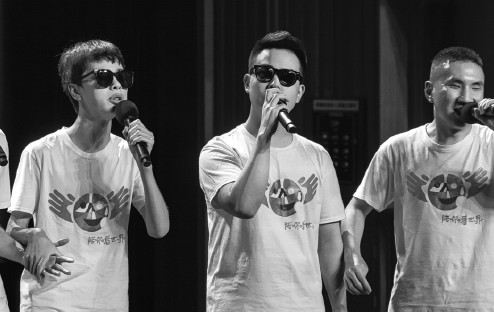
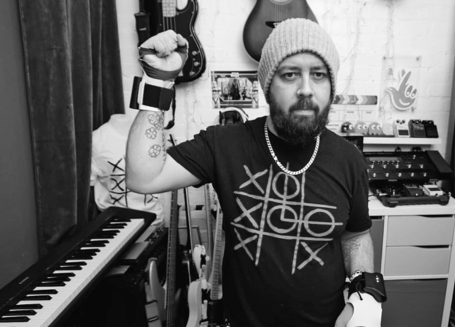
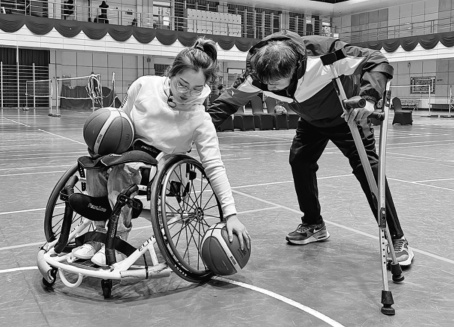
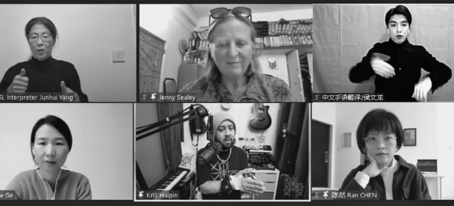
Today's Top News
- A misjudgment of situation in the first place, destabilizing AUKUS deal may bite the dust: China Daily editorial
- Welcome would be welcomed if sincere: China Daily editorial
- Xi and his wife meet Cambodian King, Queen Mother
- Xi meets Russian State Duma chairman
- Parade a tribute to Chinese people's sacrifices in WWII
- SCO will strongly uphold multilateralism

















